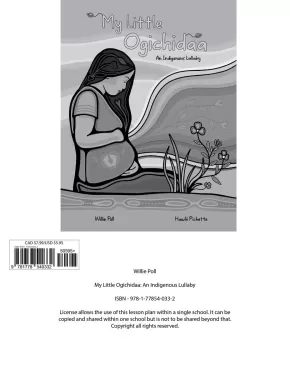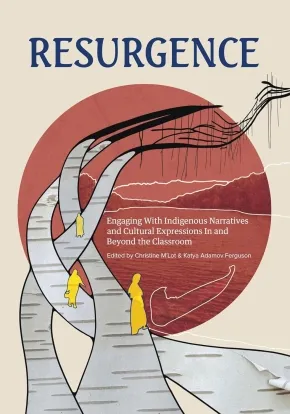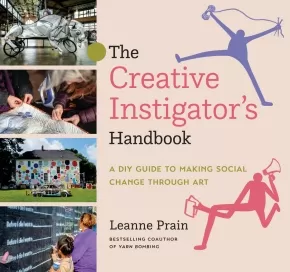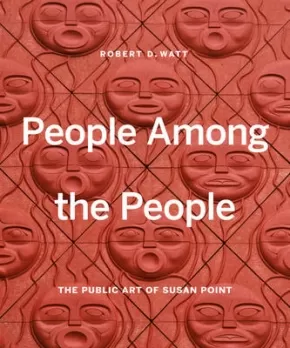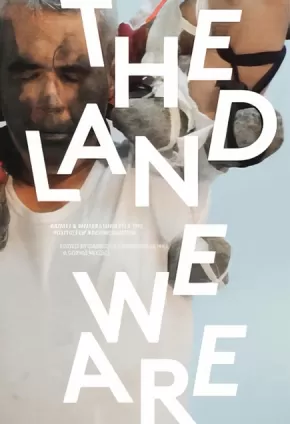
Art Resources
1
-
5
of
5 Results;
Sort By
My Little Ogichidaa Teacher Lesson Plan
$7.99
Format:
Paperback
Text Content Territories:
Indigenous Canadian;
ISBN / Barcode: 9781778540332
Synopsis:
Synopsis:
A teacher lesson plan that accompanies the book, My Little Ogichidaa. Includes comprehension questions, group activities, colouring pages, and more. My Little Ogichidaa is inspired by Indigenous motherhood. It invites readers to explore the compelling dreams and hopes of an Indigenous parent for her soon-to-be-born warrior. The word Ogichidaa itself means warrior in Anishinaabemowin, and this beautifully illustrated book is a tribute to Indigenous families everywhere who are proudly raising their children to carry forward their culture, language, and love with resilience, strength, and kindness. This story is proof that despite colonization, our world is full of Indigenous art, beauty, love, and brilliance. Through the eyes of a mother, readers gain insight into the profound bonds of family and community that are central to Indigenous life. This heartwarming and empowering story is a celebration of Indigenous love and the powerful legacy that it creates.
Educator Information
Find the accompanying student book here: My Little Ogichidaa: An Indigenous Lullaby
Additional Information
12 pages | 8.50" x 11.00" | Paper Packet
Resurgence: Engaging With Indigenous Narratives and Cultural Expressions In and Beyond the Classroom
$32.00
Editors:
Format:
Paperback
Text Content Territories:
Indigenous Canadian;
ISBN / Barcode: 9781774920008
Synopsis:
Synopsis:
A thoughtful guide to critical engagement with Indigenous literatures, perspectives, and teaching methods as well as ideas and action steps for bringing them into the classroom.
Resurgence is an inspiring collection of contemporary Indigenous poetry, art, and narratives that guides teachers in bridging existing K–12 curricula with Indigenous voices and pedagogies. Walk with us along the footbridge which seeks to:
- connect peoples and places
- link truth and reconciliation as ongoing processes
- symbolize the risk and urgency of this work for both Indigenous and settler educators
- engage tensions
- highlight the importance of balance, both of ideas and within ourselves
Through critical engagement with the texts, experienced educators Christine M’Lot and Katya Adamov Ferguson support readers in connecting with Indigenous narratives and perspectives, bringing Indigenous works in their classrooms, and creating more equitable and sustainable teaching practices.
In this resource, you will find
- diverse Indigenous voices, perspectives, and art forms from all across Turtle Island
- valuable concepts and methods that can be applied to the classroom and beyond
- practical action steps and resources for educators, parents, librarians, and administrators
Use this book as a springboard for your own learning journey or as a lively prompt for dialogue within your professional learning community.
Reviews
"Over the past several years, calls have come from across Canada for the inclusion of Indigenous worldviews and knowledge in all levels of education in the country. Enter...Resurgence." ––Windspeaker
Educator & Series Information
For use with K-12 curricula.
Contributors include KC Adams, Charlene Bearhead, Wilson Bearhead, Lisa Boivin, Nicola Campbell, Sara Florence Davidson, David A. Robertson, and Christina Lavalley Ruddy, and more!
Subjects / Themes: Education; Professional Development; Social Science; Indigenous Studies; Language Arts Disciplines; Study Teaching
This book is part of The Footbridge Series. This series aims to bridge curricular outcomes with Indigenous-centered content and perspectives from across Turtle Island. Like a footbridge, this series is intended to provide a path between Indigenous worldviews and the classroom, engaging differences, including tensions, and highlighting the importance of balance, all while helping teachers integrate Indigenous perspectives into multiple disciplines within the K-12 education system.
Table of Contents
Introduction
About This Book
About The Footbridge Series
Part 1: Resistance
Beyond Being Silenced by Sara Florence Davidson
- Connections
Poetry as Cultural Expression by Rita Bouvier
- Connections
T’seka Reflection by Lucy Hemphill
- Connections
Poetry by Louise Bernice Halfe
- Connections
Part 2: Resilience
Mental Health by David A. Robertson
- Connections
Writing as a Therapeutic Medium by Wanda John-Kehewin
- Connections
Birch Bark Technology by KC Adams
- Connections
Images and Health by Lisa Boivin
- Connections
Part 3: Restoring
Stories are Resurgence by Wilson Bearhead and Charlene Bearhead
- Connections
Why am I not on Star Trek? by Sonya Ballantyne
- Connections
Indigenous Spaces by Reanna Merasty
- Connections
Games as Resurgence by Elizabeth LaPensée
- Connections
Part 4: Reconnecting
Poems by Nicola I. Campbell
- Connections
Paths of Tradition by Russell Wallace
- Connections
Let the Children Play by Victoria McIntosh
- Connections
Ethnomathematics and Beading by Christina Ruddy
- Connections
The Contributors
Additional Resources
Index
Additional Information
224 pages | 7.00" x 10.00" | Paperback
The Creative Instigator's Handbook: A DIY Guide to Making Social Change through Art
$27.95
Format:
Paperback
ISBN / Barcode: 9781551528755
Synopsis:
Synopsis:
A guide for creatives to making impactful, socially engaged art projects.
Flash mobs come and go, but purposeful creativity can change communities. Are you a creative (aspiring or otherwise) who is curious about how you can apply your skills to activist, socially engaged art projects? Whether you paint, sew, sing, build, weld, or rhyme, The Creative Instigator's Handbook explores how to take that big project you've been dreaming about and actually make it happen.
In response to the challenging times that we live in, The Creative Instigator's Handbook will inspire readers to use their creativity to spur change in the world around them. Guiding readers through the various aspects of a project from ideation to final documentation, the book examines the relationship between creative leadership, community art projects, and social justice, and includes the perspectives of 23 creative instigators who have stretched the boundaries of what "art" should or shouldn't do.
The Creative Instigator's Handbook will appeal to creatives willing to expand their comfort zones by jumping into the fray and doing some outrageous, inspired rabble-rousing of their very own. Full-colour throughout.
Additional Information
272 pages | 8.50" x 8.00" | Paperback
People Among the People: The Public Art of Susan Point
$60.00
Artists:
Format:
Hardcover
Text Content Territories:
Indigenous Canadian; First Nations; Salish; Coast Salish; Musqueam;
ISBN / Barcode: 9781773270425
Synopsis:
Synopsis:
“I feel that it is important to re-establish our Salish footprint upon our lands, to create a visual expression of the link between the past and present that is both accessible and people-friendly. . . . I create unique, ‘original’ artwork that honours both my people and the diverse group of peoples from around the world who have come to live upon our lands on the Northwest Coast. My hope is that my art leaves a lasting impression on visitors, locals, and the surrounding communities.” — Susan Point
This beautifully designed book is the first to explore Susan Point's publicly commissioned artworks from coast to coast.
Susan Point’s unique artworks have been credited with almost single-handedly reviving the traditional Coast Salish art style. Once nearly lost to the effects of colonization, the crescents, wedges, and human and animal forms characteristic of the art of First Nations peoples living around the Salish Sea can now be seen around the world, reinvigorated with modern materials and techniques, in her serigraphs and public art installations—and in the works of a new generation of artists that she’s inspired.
People Among the People beautifully displays the breadth of Susan Point’s public art, from cast-iron manhole covers to massive carved cedar spindle whorls, installed in locations from Vancouver to Zurich. Through extensive interviews and access to her archives, Robert D. Watt tells the story of each piece, whether it’s the evolution from sketch to carving to casting, or the significance of the images and symbolism, which is informed by surviving traditional Salish works Point has studied and the Oral Traditions of her Musqueam family and elders.
In her long quest to re-establish a Coast Salish footprint in Southwest British Columbia and the Pacific Northwest of the US, Point has received many honours, including the Order of Canada and the Audain Lifetime Achievement Award. This gorgeous and illuminating book makes it clear they are all richly deserved.
Additional Information
208 pages | 10.17" x 12.39" | Colour photographs throughout | Hardcover
The Land We Are: Artists and Writers Unsettle the Politics of Reconciliation
$24.95
Editors:
Format:
Paperback
Text Content Territories:
Indigenous Canadian;
ISBN / Barcode: 9781894037631
Synopsis:
Synopsis:
The Land We Are is a stunning collection of writing and art that interrogates the current era of reconciliation in Canada. Using visual, poetic, and theoretical language, the contributors approach reconciliation as a problematic narrative about Indigenous-settler relations, but also as a site where conversations about a just future must occur. The result of a four-year collaboration between artists and scholars engaged in resurgence and decolonization, The Land We Are is a moving dialogue that blurs the boundaries between activism, research, and the arts.
The contributors to this book include leading artists and scholars engaged in questions of resurgence, restitution, and decolonization.
Contributors: Jordan Abel, Leah Decter, Jonathan Dewar, David Garneau, Ayumi Goto, Allison Hargreaves, Gabrielle L'Hirondelle Hill, Jaimie Isaac, David Jefferess, Layli Long Soldier, The New BC Indian Art and Welfare Society Collective, Sophie McCall, Peter Morin, Skeena Reece, Dylan Robinson, Sandra Semchuk, Adrian Stimson, Clement Yeh, and Keren Zaiontz.
Reviews
"This beautifully produced, richly illustrated volume not only offers readers a visual journey into the featured artistic installations and performance pieces, but through its creative use of text and graphic design is itself an artistic statement on reconciliation." --Winnipeg Free Press
Educator Information
Recommended for students in grades 11 and 12, as well as at a college/university level.
Additional Information
240 pages | 6.50" x 9.50"
Sort By

